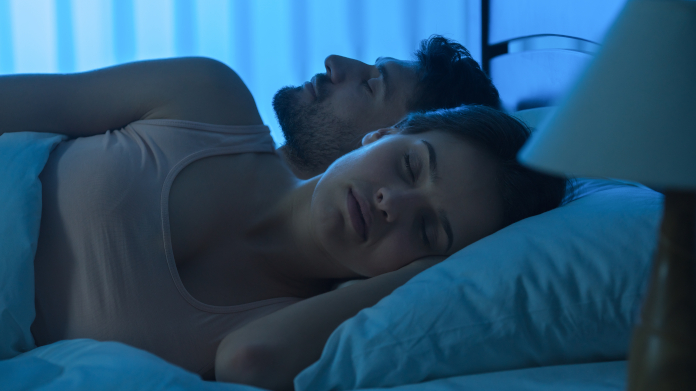The 3 best remedies for jetlag
Flying somewhere on holiday but worried about the effects of jetlag? Discover the best anti-jetlag solutions, as well as some tips for preventing motion sickness, constipation and other travel-related problems.

Jetlag: definition and symptoms
Jetlag, describes the collection of symptoms caused by disruption to our internal clock when we fly across several time zones in quick succession. It normally occurs when the time difference is more than 3 hours.
On arrival at our destination, we may experience a variety of symptoms:
- sleep problems (difficulty falling asleep, waking up in the night ...);
- intense fatigue;
- problems concentrating;
- headaches;
- irritability;
- loss of appetite;
- muscle and joint pain ...
What actually causes jetlag?
Let’s remember that our internal clock is set to the time parameters of our normal environment, namely light, temperature, meal times etc. Crossing several time zones within a short space of time disrupts this internal clock and, as a result, various of the body’s functions too. We need to adapt a little in order to become accustomed to this new circadian rhythm.
It’s often said it takes a day to adapt, though this is easier when travelling west rather than east. But for some people (especially older individuals), it can take longer, and the related physical and mental problems can therefore mar a holiday or adversely affect a business trip.
So let’s now explore the 3 natural techniques which can really help with this resynchronisation...
To reduce jetlag, take the following steps before and during your flight
In the nights leading up to your trip, try to ensure you sleep well so that you avoid building up a sleep debt, which will exacerbate jetlag.
Then once you’re on the plane, we recommend changing your watch to the time zone of your destination. In this way, you’ll have already subconsciously begun to adapt to your new time zone.
Use the flight to take a long nap, if it’s in the daytime, or to sleep the whole night (if you’re able to), if it’s a night flight. Keep yourself well-hydrated, eat lightly, avoid alcohol and stimulating drinks, and get up and move around from time to time.
Adapt to your new time zone (and get out in the daylight)
To overcome jetlag, it’s particularly important to align yourself as quickly as possible with the local time.
If you’re landing at night, then go to bed. If you’re arriving in the early hours of the morning, treat it the start of a new day.
The most important thing is not to stay cooped up inside but to get out in the fresh air so that you’re exposed to natural light, a key element of your resynchronisation.
Melatonin, the most effective anti-jetlag remedy
One of the most recognized remedies for overcoming jetlag is melatonin. A hormone produced naturally by the pineal gland, levels of which increase as night starts to fall, it is known for maintaining the sleep-wake cycle.
When jetlagged, the body’s melatonin production becomes out of synch with its actual needs. Supplementing with melatonin thus facilitates and accelerates the re-synchronisation process. This is especially so when you’re travelling from the west to the east, since melatonin production gets delayed (in the case, for example, of a European flying to Asia, or returning from the US). A melatonin supplement, taken in the evening, brings forward the release of melatonin in the body and helps you to get to sleep faster (1-4).
Melatonin supplements are available in various forms:
- tablets (as in the product Melatonin 1 mg);
- sprays, for more rapid absorption (as in Melatonin Spray);
- or combined with relaxing plant extracts such as passiflora, valerian and California poppy (as in Advanced Sleep Formula).
Other supplements to take with you on holiday
If you’re looking for other natural products to pack in your suitcase, these are the most valuable supplements to take with you on your travels:
- to start with, if you’ve got room in your case, pack any supplements you’re currently taking so as not to interrupt your course (magnesium, vitamin C, omega-3...);
- if you’re planning on travelling by car during your trip and suffer from motion sickness, ginger is the perfect anti-nausea remedy with benefits recognized by the WHO (5). An hour before travel, consume it either fresh in a tea, or in chewing gum, or take it in capsule form (such as Super Gingerols, standardized to 20% gingerols, the plant’s most active ingredients). If a boat trip is part of your holiday plans, ginger also works for seasickness;
- travelling to foreign climes is often synonymous with stomach upsets: constipation, diarrhea, bloating... Give your gut a helping hand by taking psyllium. Psyllium seed husks contain mucilage, a fibrous plant material which is converted into a viscous gel in the digestive tract. Though that might seem somewhat contradictory, psyllium has the specific ability to improve intestinal transit that’s either sluggish or too fast! (6-7) In the former, it acts by increasing the volume and viscosity of stools, and in the latter, by trapping excess water in stools (try, for example, Psyllium Husk). In addition, it’s a good idea to support your gut microbiota by taking some ‘good bacteria’ (especially the Bacillus subtilis) strain;
- heading for the beach for a spot of sunbathing ? Then in addition to your sun cream, don’t forget to take some keratin hydrolysate capsules, rich in melanin. A genuine natural tan accelerator, the patented supplement Tan-Aid is supported by several clinical studies and is perfect for achieving that beautiful, sun-kissed look!
References
- Herxheimer A, Petrie KJ. Melatonin for the prevention and treatment of jet lag. Cochrane Database Syst Rev. 2002;(2):CD001520. doi: 10.1002/14651858.CD001520. PMID: 12076414.
- Srinivasan V, Spence DW, Pandi-Perumal SR, Trakht I, Cardinali DP. Jet lag: therapeutic use of melatonin and possible application of melatonin analogs. Travel Med Infect Dis. 2008 Jan-Mar;6(1-2):17-28. doi: 10.1016/j.tmaid.2007.12.002. Epub 2008 Jan 28. PMID: 18342269.
- Tortorolo F, Farren F, Rada G. Is melatonin useful for jet lag? Medwave. 2015 Dec 21;15 Suppl 3:e6343. English, Spanish. doi: 10.5867/medwave.2015.6343. PMID: 26731279.
- Ambesh P, Shetty V, Ambesh S, Gupta SS, Kamholz S, Wolf L. Jet lag: Heuristics and therapeutics. J Family Med Prim Care. 2018;7(3):507-510. doi:10.4103/jfmpc.jfmpc_220_17
- Lien HC, Sun WM, Chen YH, Kim H, Hasler W, Owyang C. Effects of ginger on motion sickness and gastric slow-wave dysrhythmias induced by circular vection. Am J Physiol Gastrointest Liver Physiol. 2003 Mar;284(3):G481-9. doi: 10.1152/ajpgi.00164.2002. PMID: 12576305.
- Jalanka J, Major G, Murray K, et al. The Effect of Psyllium Husk on Intestinal Microbiota in Constipated Patients and Healthy Controls. Int J Mol Sci. 2019;20(2):433. Published 2019 Jan 20. doi:10.3390/ijms20020433
- Washington N, Harris M, Mussellwhite A, Spiller RC. Moderation of lactulose-induced diarrhea by psyllium: effects on motility and fermentation. Am J Clin Nutr. 1998 Feb;67(2):317-21. doi: 10.1093/ajcn/67.2.237. PMID: 9459381.
Keywords
3 Days
repeat customer
recommended by my doctor. easy to create an account. Discounts and specials are appreciated. packaging and delivery is dependable. Capsules easy to digest. I've had some some capsules and tablets that are broken inside their bottles.
Kokee
7 Days
Order was shipped on time and packaged…Wonderful Jobs!
Order was shipped on time and packaged excellently.
DMHoge
13 Days
great products and prices
great products and prices
Marie
19 Days
Easy to navigate site
Easy to navigate site, had what I was searching for, good price. easy order-check out
James Tucker
25 Days
My skin is clearing up nicely!
Pretty good for my skin so far.
Christian
28 Days
The new packaging is excellent
The new packaging is excellent - finally! No more squashed boxes and torn envelopes.
GORAN
28 Days
Great Product
Great Product
Larry Garrett
33 Days
Quick shipping
Quick shipping; good price. No issues!
Mary McCarty
34 Days
Thr product is very good and is helping…
Thr product is very good and is helping me on my health. Then is always on time
LUGO Luz
37 Days
Buying was fine
Buying was fine. I had problems with the website not recognizing my login info, and had to call to get it fixed. Other than that, everything was good.
David S. Clark
37 Days
Your super maca and super ginseng are…phenomenal
Your super maca and super ginseng are phenomenal supplements that compliment each other when taking them together. Fantastic feeling of well-being and lots of mid day energy without the crash.
Keith Mason
40 Days
I have had amazing results with every…
I have had amazing results with every supplement I've purchased. I am extremely satisfied with this company
kirstin Torres
40 Days
Fine products
Fine products . They are on the leading edge of online supplements. The only issue -so far-is they sometime run out of subscription items.
Jason Argos
43 Days
The ordering process is very user…
The ordering process is very user friendly and the products always come in a timely manner.
CARTER Rhonda
44 Days
The price for Dr
The price for Dr. Pero's AC-11 is reasonable and in line with his views. (my former colleague). Keep it pure.
CAMPBELL Clayton




